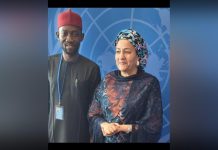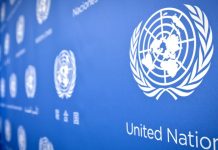Africa Press-Nigeria:
The United Nations Conference on Trade and Development (UNCTAD) is pushing for measures aimed at easing the debt burden of about $3.4 trillion on Nigeria and other developing countries undergoing economic crisis in the wake of the coronavirus outbreak.
UNCTAD admitted in a report released Thursday that developing countries were threatened by an imminent debt disaster given that the income of such countries had tumbled significantly.
“The coronavirus pandemic hit developing countries at a time when they have already been struggling with unsustainable debt burdens for many years, as well as with rising health needs.
“In 2020 and 2021 alone, developing countries’ repayments on their public external debt alone will soar to between $2.6 trillion and $3.4 trillion,” UNCTAD said.
In the report named ‘From the great lockdown to the great meltdown: Developing country debt in the time of Covid-19,’ UNCTAD analysts foresaw that the $3.4 trillion repayment would comprise between $2 trillion and $2.3 trillion in high-income developing countries and between $666 billion and $1.06 trillion in middle and low-income countries.
The document called for more systematic, accountable and concerted measures aimed at writing off the debts of developing countries.
According to UNCTAD, a trillion-dollar write-off would approach the amount required to avert economic catastrophe in the developing world.
On 30th April, the Geneva-based agency had pushed for a $2.5 trillion COVID-19 crisis package for developing countries.
Mukhisa Kituyi, UNCTAD Secretary General, said “the international community should urgently take more steps to relieve the mounting financial pressure that debt payments are exerting on developing countries as they get to grips with the economic shock of COVID-19.”
UNCTAD observed that Nigeria, Pakistan, Ghana and a number of middle and high-income economies were exempted from recent debt relief packages despite battling unsustainable debt burdens and possible financial meltdowns.
“Recent calls for international solidarity point in the right direction but have so far delivered little tangible support for developing countries as they tackle the immediate impacts of the pandemic and its economic repercussions,” said Richard Kozul-Wright, Director of UNCTAD’s globalisation division.







